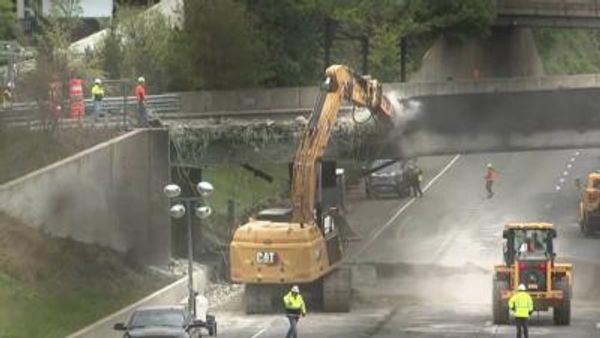
There are a lot of good arguments for encouraging workers to give up their newfound remote working freedom.
For business magnates like Apple (AAPL) -) CEO Tim Cook and Alphabet (GOOGL) -) CEO Sundar Pichai, a return to the office for their workers enables greater collaboration and, hopefully, more innovation through that collaboration.
Related: Kevin O'Leary Criticizes Elon Musk's Anti-Work From Home Stance
For people like Tesla (TSLA) -) CEO Elon Musk, a return to the office is good for productivity. "I'm a big believer that people need to be more productive when they're in person," Musk said in a CNBC interview earlier this year. "People need to get off of their goddamn moral high horse with their work from home bullshit."
And still others, like New York City Mayor Eric Adams believe that a return to the office in necessary to save the flagging economies of city centers where commercial real estate dominates.
But commercial real estate isn't the only sector exposed to the crisis. Plenty of small- and medium-sized regional banks could also falter if things don't improve in the sector.
More From Wall Street Analysts
- An analyst that correctly called the bull market in stocks offers a warning many investors won't like
- Analyst who owns Nvidia stock updates his price target after blockbuster results
- 'Market Wizard' stock analyst says we've seen the peak in technology stocks this year
"What's unique about this situation is many of these are office spaces that are in sub-great markets, B-markets. But even in cities like Boston you find vacancies up to 40% of buildings," celebrity investor Kevin O'Leary recently told Fox News.
"But here's what's unique most of these (buildings) cannot be used again as offices because the economy has changed. Up to 40% of people of who work in small business don't return to the office."
So cities like New York, where re-zoning can be a hassle due to endless red tape are in the most danger because the offices of Manhattan carry such a large footprint in the city and they may never be full again.
But O'Leary doesn't advocate escaping from New York like Snake Plissken, instead he has an even more radical idea.
"It may be better long-term to actually tear these buildings down and rebuild with a new purpose. Data centers, industrials, climate controlled storage, that's what we have to do, but who is going to pay for it that is the question because we are talking about a trillion dollars in aggregate.
Get investment guidance from trusted portfolio managers without the management fees. Sign up for Action Alerts PLUS now.






